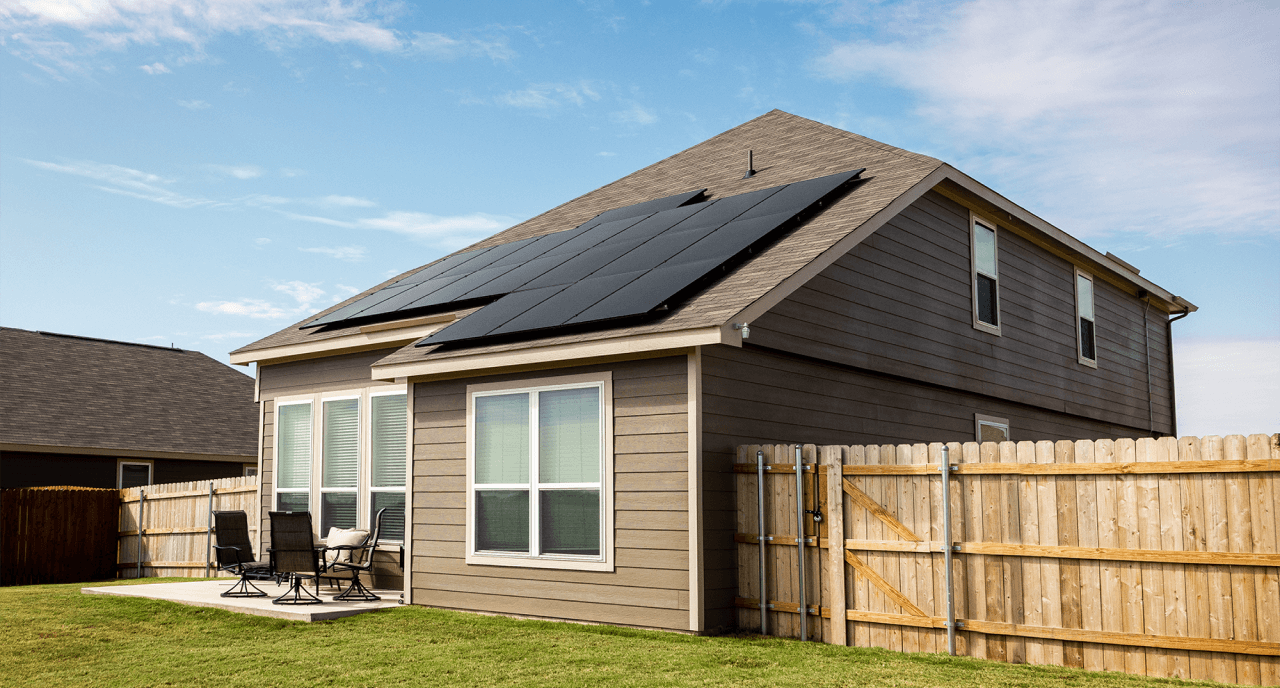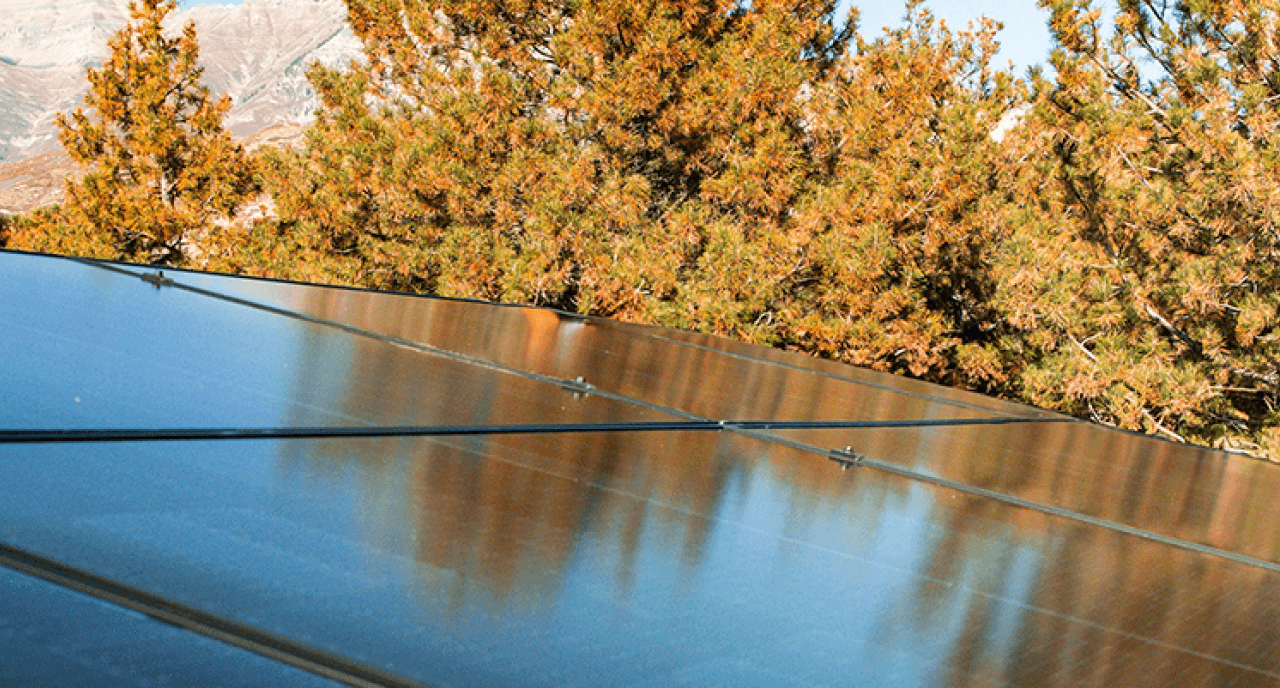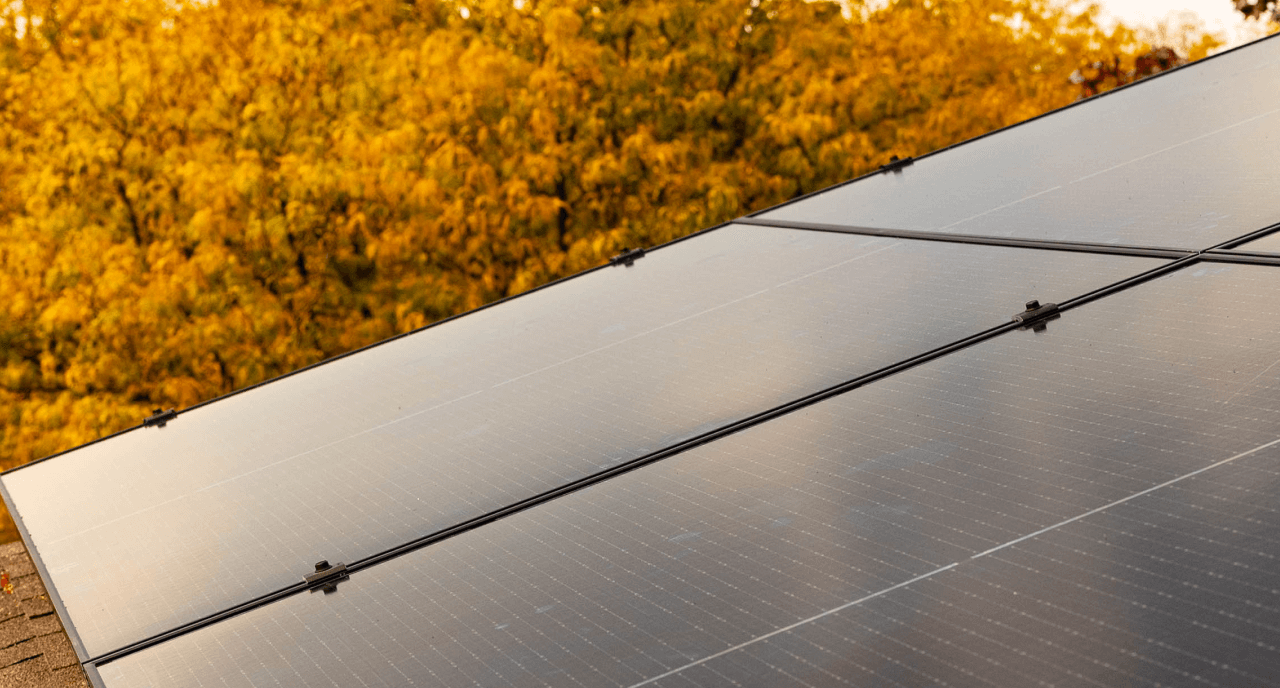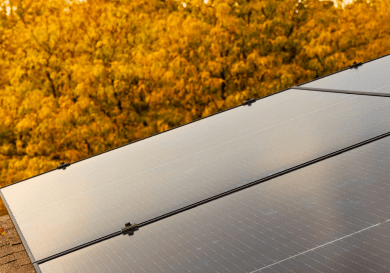Solar Financing 101
Solar Financing 101
The math makes sense with Lumio
Last edited Mar. 27th, 2024

The math makes sense when you switch to solar with Lumio. But what options are there to pay for your solar system?
Financing a residential solar system can be a daunting task, even for the most savvy of homeowners. However, it’s important to recognize that there are multiple financing options available to make the switch to solar accessible and straightforward.
Homeowners just like you can take advantage of solar loans, power purchase agreements, and more to fund the purchase of residential solar systems. Financing your switch to solar is easy when you understand all the options available to you.
In this article we will examine several available financing options so you can make the best decision for your unique energy needs.
Solar Financing Options
1. Conventional Solar Loans
2. Power Purchase Agreements
3. Solar Leases
4. Cash
5. Personal Loans: Secured and Unsecured
Learn more about each of the options below to see what makes the most sense for you.
Conventional Solar Loans
One of the most popular financing options for a solar system is a conventional solar loan. Lumio has partnered with multiple financiers in order to provide you with the best options for your needs.
With this option you have a predictable monthly payment for the duration of your loan, as well as the security of knowing that after you finish paying your panels off, you will own the system outright and enjoy the benefits of clean energy at no cost to you.
Another benefit that many customers can take advantage of is the clean energy credit, which you can learn more about here.
Conventional Solar Loans
Pros
- Predictable monthly payment
- Potentially take advantage of the 30% ITC
- Own the system outright after your term is up
- 80% production guarantee for 25 years (manufacturer’s warranty)
- Predictable monthly payment
- Potentially take advantage of the 30% ITC
- Own the system outright after your term is up
- 80% production guarantee for 25 years (manufacturer’s warranty)
Cons
- Depending on your agreement, any maintenance or cleaning will be your responsibility
- There are credit score limitations for most loans which can result in higher interest rates
- Depending on your agreement, any maintenance or cleaning will be your responsibility
- There are credit score limitations for most loans which can result in higher interest rates
Power Purchase Agreements
Another great option for financing a solar system is a PPA or power purchase agreement. Just like with a loan, a PPA will have a predictable monthly payment and is often at a lower rate than most utility companies.
With this option, you will not own your power or your panels, but instead all the energy that is produced from your system will be directly sold to you at a per-unit price. This per-unit price is typically lower than paying for electricity from your existing power company.
As a PPA customer, you get to enjoy a lower price on your energy usage and the benefits of clean energy for a set period of time. The solar company, on the other hand, gets to enjoy the tax incentives that come along with the installation of a new solar energy system.
Most PPA agreements are signed for between 10 and 25 years. In many cases, you may renew your PPA contract at the end of your term if you so choose. Additionally, your solar energy company can offer you the chance to buy the solar energy system at the end of your contract term so that you can enjoy the added home value of solar.
This can be a great option if you are looking into reducing your energy bill without having the burdens of ownership. Solar power can help drastically reduce your need for power from the utility company, and, with a PPA, you can get that solar power you need for your home at an affordable price.
Power Purchase Agreements
Pros
- No rate hike
- No upfront costs
- No maintenance or upkeep costs required
- No rate hike
- No upfront costs
- No maintenance or upkeep costs required
Cons
- No tax incentives or benefits
- Don’t own the solar energy system
- No tax incentives or benefits
- Don’t own the solar energy system

Solar Leases
A solar lease is another financing option that is similar to a PPA, but with one key difference. With this type of arrangement, the solar company will install all of the necessary equipment on your home, and you will agree to a set monthly price to “rent” the panels from the company.
This means that you can rest assured that any maintenance issues that will need to be handled will be the responsibility of the company from whom you are leasing.
While a PPA is an agreement to pay per-unit of power produced from your solar system, a lease is a set amount monthly to rent the equipment. This means that whether your panels under or over-produce power for your needs, your monthly lease price will be the same.
With this option you will also not be able to claim the incentives and rebates that are available for solar installations since you do not own the solar system.
Solar Leases
Pros
- No upfront costs
- No maintenance or upkeep costs required
- Predictable monthly payment
- No upfront costs
- No maintenance or upkeep costs required
- Predictable monthly payment
Cons
- Don’t own the solar energy system
- No tax incentives or rebates
- Don’t own the solar energy system
- No tax incentives or rebates
Cash
As with any home upgrade, you can decide to pay cash for solar. The actual cost of having solar installed in your home is going to vary depending on a number of different factors like your home's square footage and energy needs.
By paying cash upfront for your solar upgrade, you can enjoy owning the system outright. This means that you can take advantage of all the tax incentives that are out there for solar homeowners.
Additionally, you won't have to worry about a monthly payment or a repossession of your solar panels if you default on your loan agreement.
Cash
Pros
- You own the solar energy system outright
- No financing payments required
- Enjoy tax incentives and rebates
- You own the solar energy system outright
- No financing payments required
- Enjoy tax incentives and rebates
Cons
- High upfront cost
- You’re responsible for proper maintenance
- High upfront cost
- You’re responsible for proper maintenance


Personal Loans: Secured and Unsecured
A personal loan—offered by many online lenders, credit unions, and banks—is a great option for those who have good credit and want to own their solar upgrades and leverage the tax incentives.
With a personal loan, you have the option of an unsecured loan or a secured loan. An unsecured personal loan means that the lender is giving you a lump sum of money in good faith that you'll repay it. You'll be responsible for paying a fixed monthly payment for a set term.
A secured personal loan is very similar to an unsecured one. The main difference is you'll have to pledge collateral for a secured personal loan. The type of collateral used varies greatly and depends on what you have available to offer as collateral (e.g., using your vehicle title as collateral).
Using a secured personal loan to finance your solar investment is likely to have a lower interest rate when compared to an unsecured loan, because the lender has something of value (your collateral) to compensate for any lost funds if, for whatever reason, you're unable to repay the loan.
Personal loans can be very simple because they're set up with a fixed monthly payment, term, and interest rate.
Individuals who have good credit are most likely to be approved for a personal loan.
Secured and unsecured personal loans may have a higher interest rate than other solar financing options and can be difficult for individuals with less than perfect credit to obtain without offering collateral.
Personal Loans: Secured and Unsecured
Pros
- Own your solar energy system outright
- Save more with tax incentives and rebates
- Offers access to quick financing (with good credit)
- Enjoy tax incentives and rebates
- Own your solar energy system outright
- Save more with tax incentives and rebates
- Offers access to quick financing (with good credit)
- Enjoy tax incentives and rebates
Cons
- Offers higher interest rates
- Offers shorter financing terms, which result in higher monthly payments
- Creates an opportunity for your collateral to be repossessed if your secured loan goes into default
- Offers higher interest rates
- Offers shorter financing terms, which result in higher monthly payments
- Creates an opportunity for your collateral to be repossessed if your secured loan goes into default
We know solar is an investment, and just like any investment you should know what all your options are. Lumio has multiple financing partnerships in place to make sure you get the best deal for your system.
Whether you finance with a conventional solar loan, PPA, solar lease, cash, or personal loan, you’ll find that switching to solar more often than not saves you money over the life of the system and ensures predictable payments.
Ready to see if Lumio is right for you? Our teams are standing by to help. Switch to solar today!
Ready to see if Lumio is right for you? Our teams are standing by to help. Switch to solar today!
